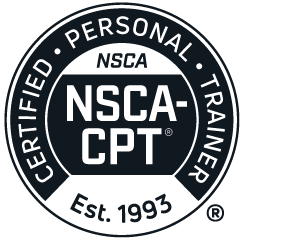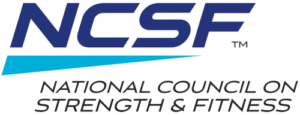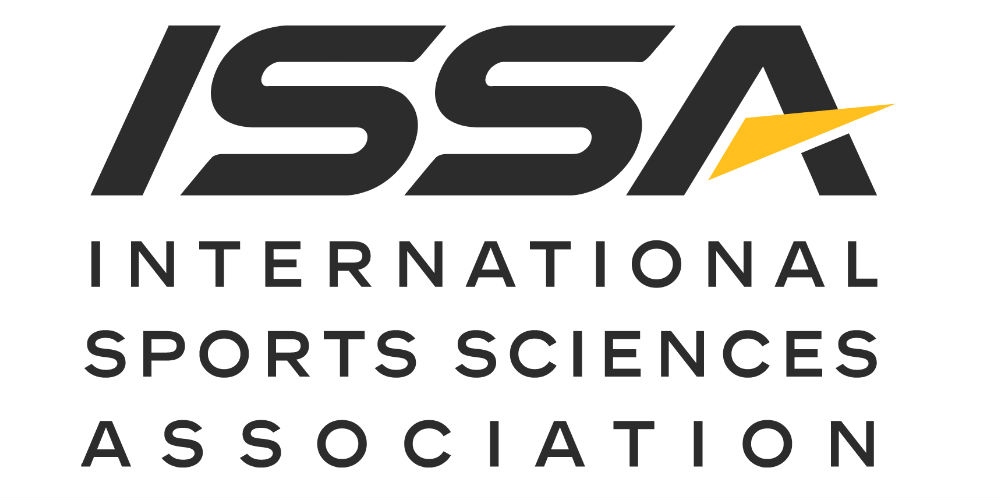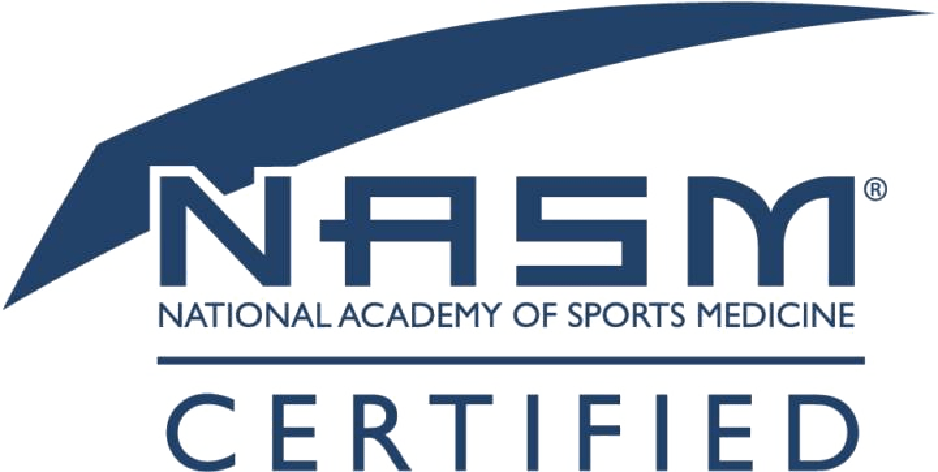Best Personal Trainer Certifications
The best personal trainer certifications are highly recognized within the fitness industry and allow you to design training programs, guide clients through workouts, and build a fitness business – whether in a gym, online, or in your own studio. The quality of your certification can shape not only your knowledge but also your job prospects, salary, and credibility.
Choosing the proper certification is crucial for success, so we’ve ranked six top certified personal training programs based on what matters most to aspiring trainers: getting certified quickly, keeping costs reasonable, and actually landing a job. Our research-driven scoring system evaluates each certification across six practical factors that directly impact your career success – from how fast you can start working to the salary you can expect to earn.

Exceptional
9.4
Highest Reviews + Lowest Cost
See Pricing ➜
Exceptional
9.5
High Industry Recognition
See Pricing ➜
International Sports Science Association
- Flexible payment plan options
- Highly-rated support
- Modest CEU requirement
National Academy of Sports Medicine
- Utilizes the OPT Model
- Most recognized certification
- Trainer salaries rank highly
Exceptional
9.5

National Council on Strength & Fitness
- Great for training athletes
- Novel holistic education program
- Generous study period
Exceptional
9.2

National Personal Trainer Institute
- Live hands-on training
- Department of Education recognized
- Diploma and certification given
Exceptional
8.9
Fitness Mentors
- Highest exam pass rate
- Lowest cost cert
- Best customer support
Exceptional
8.9

National Strength & Conditioning Association
- Online and Self Paced
- Affordable Payment Plans
- Non-Proctored Exam
Exceptional
8.7
87,455 People
have used this article to select a personal trainer certification
Our Reviews
ISSA
Read Review
NASM
Read Review

ACE
Read Review

NCSF
Read Review
FM
Read Review
Must Reads

ISSA Certified Personal Trainer
Read More

FM VS NASM
Read More

FM VS ISSA
Read More
See all articles
Best For Guaranteed Job Placement (19/24 points)

Cost
Support
CURRICULUM
DIFFICULTY
OVERALL
Pros:
- Only certification with a money-back guarantee if a job is not found within 6 months of certification
- Highest pass rate at 90%
- Unlimited exam time and free retakes
- Comprehensive study materials (videos, audio lectures, workbooks)
- 100% online, self-paced with no deadlines
- Strong international recognition
- Emphasis on practical skills and business acumen
- Must be at least 18 years old with a high school diploma or equivalent before testing
- Must hold a current CPR + AED certificate (complete with hands-on skills check) before testing
Cons:
- Most expensive certification option
- Shorter validity period (2 years vs 3 for some others)
- Unproctored exam may carry less weight with some employers
- Not ideal for advanced strength and conditioning focus
- Must pass the NCCPT Certified Personal Trainer NCCA exam as well as apply and interview with at least three gyms within 6 months of completing your certification course in order to qualify for money-back guarantee.
Summary:
The ISSA-CPT, from the International Sports Sciences Association, earned the highest score in our rankings at 19/24. Despite being the most expensive option, it’s the only certification offering a 6-month job placement guarantee—making it ideal for career changers who need income certainty.
Best For:
Career changers and beginners who value job security over cost, prefer flexible online learning, and want the confidence of a job guarantee—especially those planning to work internationally or online.
Key Stats:
- Time to Certify: 2-3 months, up to 6 months allowed (3 points)
- Cost: Starting at $868 (1 point – relatively expensive)
- Job Placement: No; however, it includes a 100% money-back guarantee if a job is not found within 6 months of certification. (5 points – only cert with this)
- Recognition: NCCA-accredited, accepted globally in 160+ countries (5 points)
- Program Rigor: 160 questions, online, unproctored, no time limit (3 points)
- Average Salary: ~$50,000/year (2 points)
- Pass Rate: 90% (highest among all certifications)
- Validity: 2 years, requires 20 CE hours for renewal
Starting at $868
Best for Industry Recognition (18/24 points)

Cost
Support
CURRICULUM
DIFFICULTY
OVERALL
Pros:
- Strongest brand recognition in the industry
- Best digital learning platform with video-heavy content
- Systematic approach to assessments and corrective exercise
- Highly respected by all gym types and private clients
- Self-paced online study with excellent resources
- Must be at least 18 years old with a high school diploma or equivalent before testing
- Must hold a current CPR + AED certificate (complete with hands-on skills check) before testing
Cons:
- No job placement support despite premium pricing
- One of the toughest exams requiring deep preparation
- Higher cost than most competitors
- Strict retake policy (escalating wait times: 1 week after first attempt, 30 days after second attempt, then 1 year after third attempt)
- Salary claims may be optimistic compared to industry averages
Summary:
The NASM-CPT, offered by the National Academy of Sports Medicine, scored 18/24 in our rankings, the second-highest score. It’s NCCA-accredited and often referred to as the gold standard in the industry. The NASM-CPT earns perfect marks for employer recognition despite its higher cost and lack of job placement support.
Best For:
Those who want the most recognized certification and can afford the higher upfront cost, especially if working in commercial gyms, private training, or online fitness where the NASM brand carries significant weight.
Key Stats:
- Time to Certify: 2-3 months (even sooner possible) (4 points)
- Cost: Starting at $799 (2 points – higher cost)
- Job Placement: No support offered (1 point)
- Recognition: NCCA-accredited, considered the gold standard by employers (5 points – top score)
- Program Rigor: 120 questions, 2 hours, proctored exam (3 points)
- Average Salary: ~$126,880/year (per NASM: $61/hour) (3 points)
- Pass Rate: 65%
- Validity: 2 years, requires 2.0 CEUs for renewal
Starting at $799
Best for Budget-Friendly Learning (15/24 points)

Cost
Support
CURRICULUM
DIFFICULTY
OVERALL
Pros:
- One of the most affordable among major certifications
- Highest pass rate at 79%
- Accepted by all major gym chains
- International recognition in 160+ countries
- Digital Learning Portal with videos, quizzes, and flashcards
- Strong focus on functional anatomy and evidence-based practice
- You must be 18 years of age with a high school diploma or equivalent before testing.
- CPR/AED certification is not required to enroll in the program and take the exam.
Cons:
- No job placement assistance
- Lower average salary compared to other certifications
- Less brand recognition may impact resume appeal
- 90-day mandatory wait for retakes
- Learning platform is less polished than premium options
- Limited focus on business skills or behavioral coaching
Summary:
The NCSF-CPT, offered by the National Council on Strength and Fitness, is a budget-friendly option that scored 15/24 in our rankings. Despite being less known than NASM or ACE, it’s NCCA-accredited and accepted by major chains like Gold’s Gym, Planet Fitness, 24 Hour Fitness, and Orangetheory.
Best For:
Budget-conscious individuals who want a legitimate, gym-accepted certification at the lowest price point and don’t need job placement support or premium learning materials.
Key Stats:
- Time to Certify: 2-3 months, up to 6 months (3 points)
- Cost: Starting at $539 (3 points – good value)
- Job Placement: No support offered (1 point)
- Recognition: NCCA-accredited, accepted by major chains, recognized in 160+ countries (4 points)
- Program Rigor: 150 questions, 3 hours, proctored exam (2 points)
- Average Salary: ~$50,246/year (1 point)
- Pass Rate: 79% (highest among certifications)
- Validity: 2 years, requires 10 CEUs for renewal
Starting at $349
Best for Career Changers (15/24 points)

Cost
Support
CURRICULUM
DIFFICULTY
OVERALL
Pros:
- Excellent employer recognition - often specifically sought by gyms
- Strong online learning platform via ACE University
- Beginner-friendly with balanced curriculum
- Self-paced study with videos, quizzes, and flashcards
- Unlimited retakes available (with fees)
- Client-centered approach ideal for general fitness
- Globally recognized certification
- Must be at least 18 years old with a high school diploma or equivalent before testing
- Must hold a current CPR + AED certificate (complete with hands-on skills check) before testing
Cons:
- No job placement assistance despite strong recognition
- Moderate pass rate requires disciplined study
- Less depth in strength and performance training
- Shorter certification period (2 years vs 3 for other competitors)
- Additional retake fees can increase total cost
Summary:
The ACE-CPT is one of the most popular and beginner-friendly certifications in the fitness industry. Offered by the American Council on Exercise, it scored 15/24 in our rankings, with particularly high marks for employer recognition despite lacking job placement support.
Best For:
Career changers and beginners who want the most recognized certification for general fitness training in commercial gyms or online, and prefer a well-structured online learning experience over job placement guarantees.
Key Stats:
- Time to Certify: Variable, but usually completed within 3-6 months (2 points)
- Cost: Varies based on different study packages (self-guided options through premium guided lessons) (3 points – moderate)
- Job Placement: No support offered (1 point)
- Recognition: NCCA-accredited, highly recognized by employers globally (5 points – top score)
- Program Rigor: 150 questions, 3 hours, proctored exam (2 points)
- Average Salary: ~$62,927/year (2 points)
- Pass Rate: 65%
- Validity: 2 years. Requires 2.0 CECs for renewal (including 0.1 CEC on Professional Conduct and Ethics)
Starting at $675
Best for Clinical Fitness (14/24 points)

Cost
Support
CURRICULUM
DIFFICULTY
OVERALL
Pros:
- Respected among hospitals and health institutions
- Strong foundation in exercise science and health assessment
- Flexible testing options (in-person or online)
- Great for science-based and clinical training approaches
- NCCA accredited
Cons:
- Lowest average salary among major certifications
- No job placement assistance
- Lacks practical programming frameworks for beginners
- Text-heavy, scientific prep not ideal for visual learners
- High total cost when including ACSM's study materials
- Strict retest policy (15-day wait, max 4 attempts per year)
Summary:
The ACSM-CPT is a science-focused certification from the American College of Sports Medicine, best known for its clinical and academic depth. While it scored 14/24 in our rankings, it remains valuable for those pursuing careers in exercise physiology, hospital-based fitness, or rehabilitation settings.
Best For:
Those committed to clinical or medical fitness careers, exercise physiology, or hospital-based rehabilitation who value scientific depth over practical business skills and don’t mind lower initial earning potential.
Key Stats:
- Time to Certify: 3-6 months, up to 9 months (2 points)
- Cost: Starting at $449 (4 points – affordable)
- Job Placement: No support offered (1 point)
- Recognition: NCCA-accredited, highly respected by health institutions (4 points)
- Program Rigor: 150 questions, 2.5-3 hours, proctored exam (2 points)
- Average Salary: ~$48,191/year (1 point – lowest among certifications)
- Pass Rate: 69%
- Validity: 3 years, requires 45 CECs for renewal
Starting at $449
Best for Performance Science (14/24 points)

Cost
Support
CURRICULUM
DIFFICULTY
OVERALL
Pros:
- Most affordable option among major certifications
- Strong science/research foundation with journal access
- Excellent reputation in strength and conditioning circles
- NCCA accredited
- Must be at least 18 years old with a high school diploma or equivalent
- Must hold a current CPR + AED certificate (complete with hands-on skills check) before testing
Cons:
- In-person exam only - no online testing option
- No job placement assistance
- Textbook-heavy study format lacks video/multimedia support
- Materials sold separately - no bundled prep packages
- 90-day wait period for retakes
- Exam preparation materials are not included with registration
- Exam retake fees can raise the overall cost
Summary:
The NSCA-CPT is a respected certification backed by the National Strength and Conditioning Association, known for its scientific depth and emphasis on athletic performance. While it scored 14/24 in our rankings, it remains a solid choice for those who want to train athletes or work in performance facilities.
Best For:
Those committed to training athletes or working in performance facilities who value scientific rigor over convenience and don’t mind the in-person exam requirement.
Key Stats:
- Time to Certify: 3-6 months, up to 9 months (2 points)
- Cost: Starting at $300 for members, $435 for non-members (4 points – very affordable)
- Job Placement: No support offered (1 point)
- Recognition: NCCA-accredited, highly respected by health institutions (4 points)
- Program Rigor: In-person proctored exam = 155 multiple choice questions over a 3-hour time period (2 points)
- Average Salary: ~$48,191/year (1 point – lowest among certifications)
- Pass Rate: 66%
- Validity: 3 years with CEU requirements
Starting at $449
Best Personal Trainer Certification Compared
| Certification | Time Frame To Get Certified | Certification Cost | Accreditation & Employer Recognition | Difficulty (Pass Rate) | Average Salary Estimate | Our rating (Final Score) |
|---|---|---|---|---|---|---|
| ISSA Personal Trainer Certification | 2 to 3 months (up to 6 months) | $868+ | International; Widely accepted; Certification emphasizes practical skills and business acumen, alongside foundational knowledge in exercise science and client interaction | 90% | ~$56,000/ year | 19/24 |
| NASM Personal Trainer Certification | 2 to 3 months (up to 6 months) | $799+ | NCCA; Gold standard in industry, Emphasis on systematic approach to program design, exercise technique, training instruction, corrective exercise, and understanding muscular imbalance; | 70% | ~$126,880/ year | 18/24 |
| NCSF Certified Personal Trainer | 2 to 4 months (up to 6 months) | $349+ | NCCA; Accepted by major gym chains, emphasis on functional anatomy, programming, and evidence-based practice; | ~78% | ~$50,246/ year | 15/24 |
| ACE Personal Trainer Certification | 3 to 6 months | $675+ | NCCA; Widely recognized, emphasis on a client-centered approach; | 65% | ~$62,927/ year | 15/24 |
| ACSM Certified Personal Trainer | 3 to 6 months (up to 9 months) | $449+ | NCCA; Emphasis on exercise science, health assessment, and risk factor screening; Trusted by health institutions; | 69% | ~$48,191/ year | 14/24 |
| NSCA Certified Personal Trainer | 3 to 6 months | $300+ | NCCA; Emphasis on strength, conditioning, and athletic performance; | 72% | ~ $57,309/ year | 14/24 |
How We Ranked the Best Fitness Trainer Certifications
We evaluated 6 fitness trainer certifications based on what matters most to aspiring trainers: time frame to get certified, cost, job placement after completion, accreditation, and certification difficulty.
Each certification earned up to 24 points across these 6 key factors:
Time to Certification
(up to 4 points)
How fast can you realistically start working?
- 4 points: 2 to 3 months or less
- 3 points: 2 to 6 months
- 2 points: 3 to 6 months
Certification Cost
(up to 4 points)
Course packages cost
- 4 points: Under $500
- 3 points: $500-$700
- 2 points: $700-$900
- 1 point: $900+
Job Placement Support
(up to 5 points)
Does the program help you get hired?
- 5 points: Job guarantee or placement assistance
- 1 point: No job support
Industry Recognition & Accreditation
(up to 5 points)
Will employers respect your certification?
- 5 points: NCCA accredited + widely recognized by major gyms
- 4 points: Industry recognized but limited reach
Program Quality & Exam Rigor
(up to 3 points)
How well does it prepare you for real-world training?
- 3 points: Comprehensive curriculum, rigorous exam
- 2 points: Solid foundation, moderate difficulty
- 1 point: Basic program, easier requirements
Average Salary Potential
(up to 3 points)
Expected earnings based on industry data.
- 3 points: $60,000+ average
- 2 points: $50,000-$60,000
- 1 point: Under $50,000
How Rankings Work
We simply added up all six scores. The certifications with the highest total points ranked at the top. For example, a certification scoring 19/24 offers fast completion, strong job support, and excellent industry recognition—making it a top choice for most aspiring trainers.
Which One Should You Choose?

You need a job guarantee and prefer online learning

You want maximum credibility and can job hunt independently

You want balanced recognition and beginner-friendly training

You're on a tight budget but still want gym acceptance

You're pursuing clinical/medical fitness careers

You want to train athletes and don't mind in-person exams
Quick Summary
- ISSA (19/24) wins overall—the only certification with a job placement guarantee, worth the $868+ price if you need income certainty
- NASM (18/24) has the strongest brand recognition but costs $799+ with no job support
- Best budget option: NSCA at $300 (legitimate but in-person exam only)
- Only 1 of 6 certifications helps you actually get hired—a major industry gap
The Reality Check
- Higher price doesn’t always mean better outcomes (NASM has no job support despite premium cost)
- Easier exams (ISSA 90%, NCSF 78%) may carry less weight with some employers
- Most certifications last only 2 years—factor in renewal costs
Bottom line: If you need a job fast, ISSA is your only real option. If you want prestige, go NASM. If money's tight, NCSF or NSCA work fine.
87,455 People
have used this article to select a personal trainer certification
Our Reviews
ISSA
Read Review
NASM
Read Review

ACE
Read Review

NCSF
Read Review
FM
Read Review
Quiz: Which Cert is Best for You?
Must Reads

ISSA Certified Personal Trainer
Read More

FM VS NASM
Read More

FM VS ISSA
Read More
See all articles

Hannah Daugherty
Hannah is a certified trainer through both the American Council on Exercise and National Academy of Sports Medicine. She also obtained her Corrective Exercise Specialist certification through NASM. With a Bachelor’s degree in Kinesiology and a Master’s degree in Exercise Science, Hannah enjoys devoting her time to staying on top of current fitness trends and putting in to practice the many different skills she has learned, including fact checking, proofreading, and writing scholarly-based health and wellness articles.
Hannah recently received her Level 2 Master Health Coach certification from Precision Nutrition, and is planning on becoming a board-certified Health Coach. She enjoys reading, weight lifting, and spending time with her husband and son.
